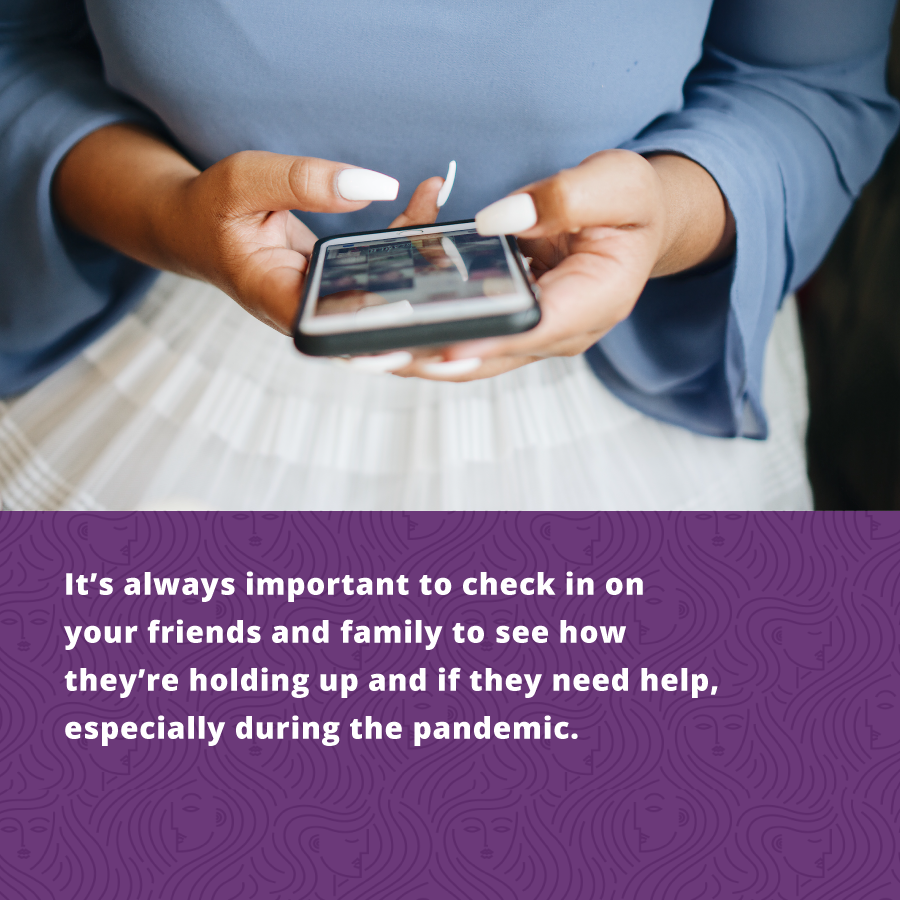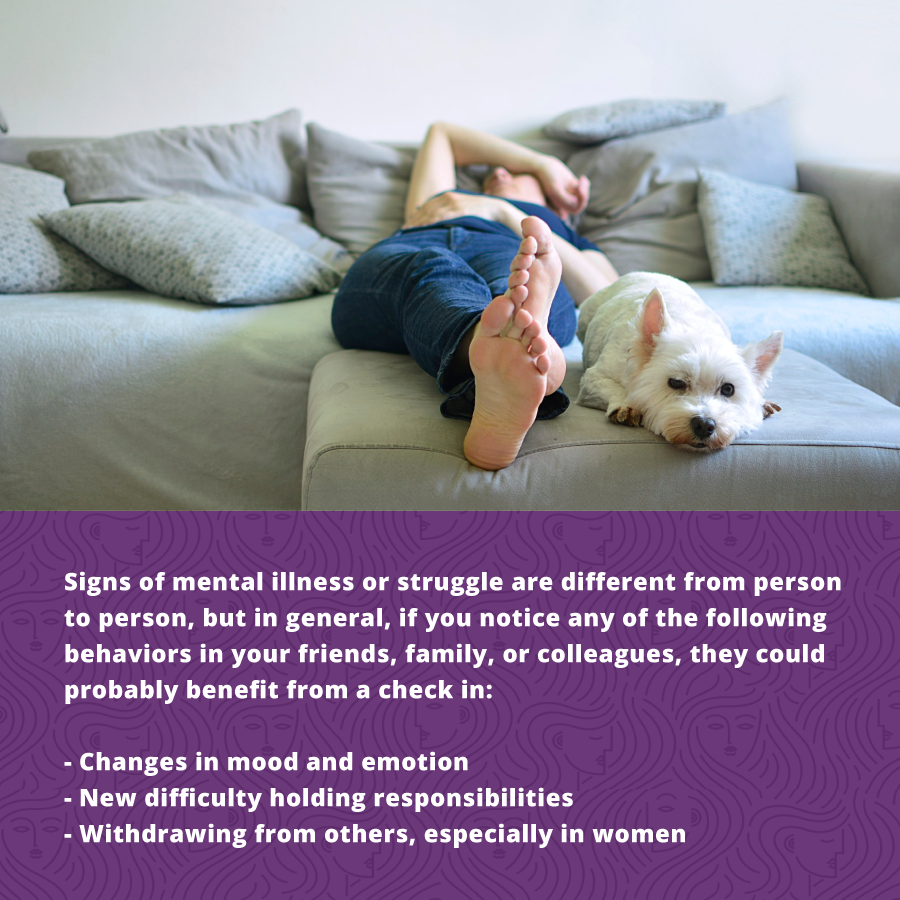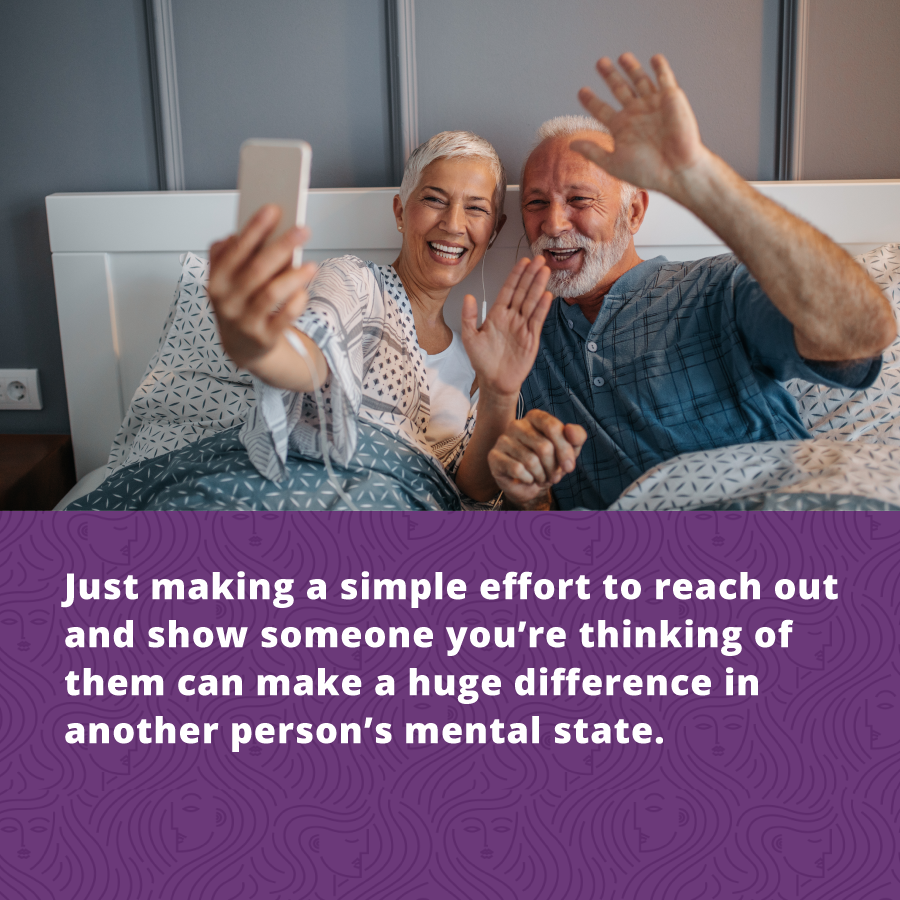Focusing on Women’s Mental Health: How to Show Up for your Loved One’s Mental Health during COVID-19
We don’t need to delve into all the ways COVID-19 has interrupted our life plans and our day to day routines – you get it. Everyone gets it. World mental health awareness week reminds us that there are plenty of people who may be newly struggling with their mental health. This isn’t something new that started with the onset of coronavirus, however, all the uncertainty and social isolation makes managing our mental health especially difficult.

It’s always important to check in on your friends and family to see how they’re holding up and if they need help, especially during the pandemic. While you might not be able to drop in and comfort your loved ones in the same ways you are used to, there are still things you can do to show them you care and help them through a rough mental state.
Keeping Women’s Mental Health on the Radar
In a recent study, 70.3% of the respondents said that their mental health had gotten worse since the pandemic began, and loneliness was the top reported reason why. Unfortunately, women’s mental health seems to be taking a bigger hit than men’s. In another study, 27% of women reported an increase in challenges in relation to mental illness compared to 10% of men.
Some people might seem better equipped to handle the uncertainty and social isolation than others. How isolation impacts you is largely dependent on your personality type, but your personal circumstances also have a huge impact on your mental health. A disproportionately high degradation in women’s mental health could be due to a number of things. Higher rates of income loss among women due to the pandemic and increased work within the household could be contributors, as many women must now act as mothers, school teachers, and providers.
Mental illness and feelings of anxiety are affecting everyone right now, but it’s important to see this data as an alarm bell and a reminder to keep women’s mental health on your radar.
How to Support Your Loved Ones while Socially Distancing

Social restrictions are put in place to protect our health, but their negative side effect falls on our mental health. Signs of mental illness or struggle are different from person to person, but in general, if you notice any of the following behaviors in your friends, family, or colleagues, they could probably benefit from a check-in:
- Changes in mood and emotion
- New difficulty holding responsibilities
- Withdrawing from others, especially in women
Even when separated, there are things you can do to show up for your loved one’s mental health while respecting their physical health.
- Check-in. Many people don’t check in with their loved ones as often as they’d like either because they get too busy or don’t want to be a burden. However, think about all the times when you have gotten an unexpected message from a friend or family member, just reaching out to catch up. It’s always nice to hear from someone who cares about you to shake up your days and remind yourself that you’re not alone. Just by picking up a phone, sending a text message, or setting aside some time for a video chat will show your loved ones that you’re still thinking about them, even with everything else that’s going on in the world.
- Listen. Listening is the key to successful communication of any type, and especially when you’re talking to someone who might be experiencing a mental health crisis. When someone opens up, they don’t always want advice, but they do want to be heard and taken seriously. Asking questions shows you are attentive and concerned about how they have been feeling.
- Get creative. So many people felt that they had to leave their previous lives behind with the emergence of the pandemic. Abandoning a healthy routine can have serious consequences on your mental health and starting a new routine can be especially hard. That’s why it’s important to get creative with the “events” you and your loved ones can do together while apart. Sign up for an online class together, try Kast to have virtual movie nights, go for a socially-distanced walk together if you can, or enroll in a virtual fitness class together to get moving. All of these are great ways to reignite your own passions, grow closer to your loved ones, and help to get endorphins flowing while we get over the hump of this pandemic.

You don’t need to be a mental health expert to make a positive impact on the mental health of your friends and loved ones. Now, just making a simple effort to reach out and show someone you’re thinking of them can make a huge difference in another person’s mental state. You are uniquely positioned to help your loved ones because you know them better than anyone. This week, during World Mental Health week, let’s all go the extra mile to form a community and support each other’s mental health.

